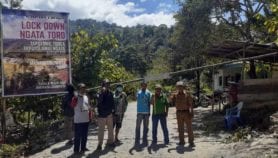Send to a friend
The details you provide on this page will not be used to send unsolicited email, and will not be sold to a 3rd party. See privacy policy.
A model law, unveiled at a conference last month on the South Pacific island of New Caledonia, could help to ensure that indigenous communities are properly rewarded for the commercial exploitation of their traditional knowledge.
The law requires any company seeking to exploit traditional knowledge and culture to obtain the permission of the group that first developed it. Applicants would be made through regional cultural authorities, which would be in charge of identifying and alerting the traditional owners. The owners would then have the right to reject the application or to negotiate an autorisation agreement.
The law was discussed by patent officials, lawyers and politicians from South Pacific states on 17 September. The government of Fiji has asked Puri for assitance in passing the law. Papua New Guinea, Samoa and Tonga are considering following suit, although some small island states may lack the legal set-up to enact the law.
Link to Nature news story













